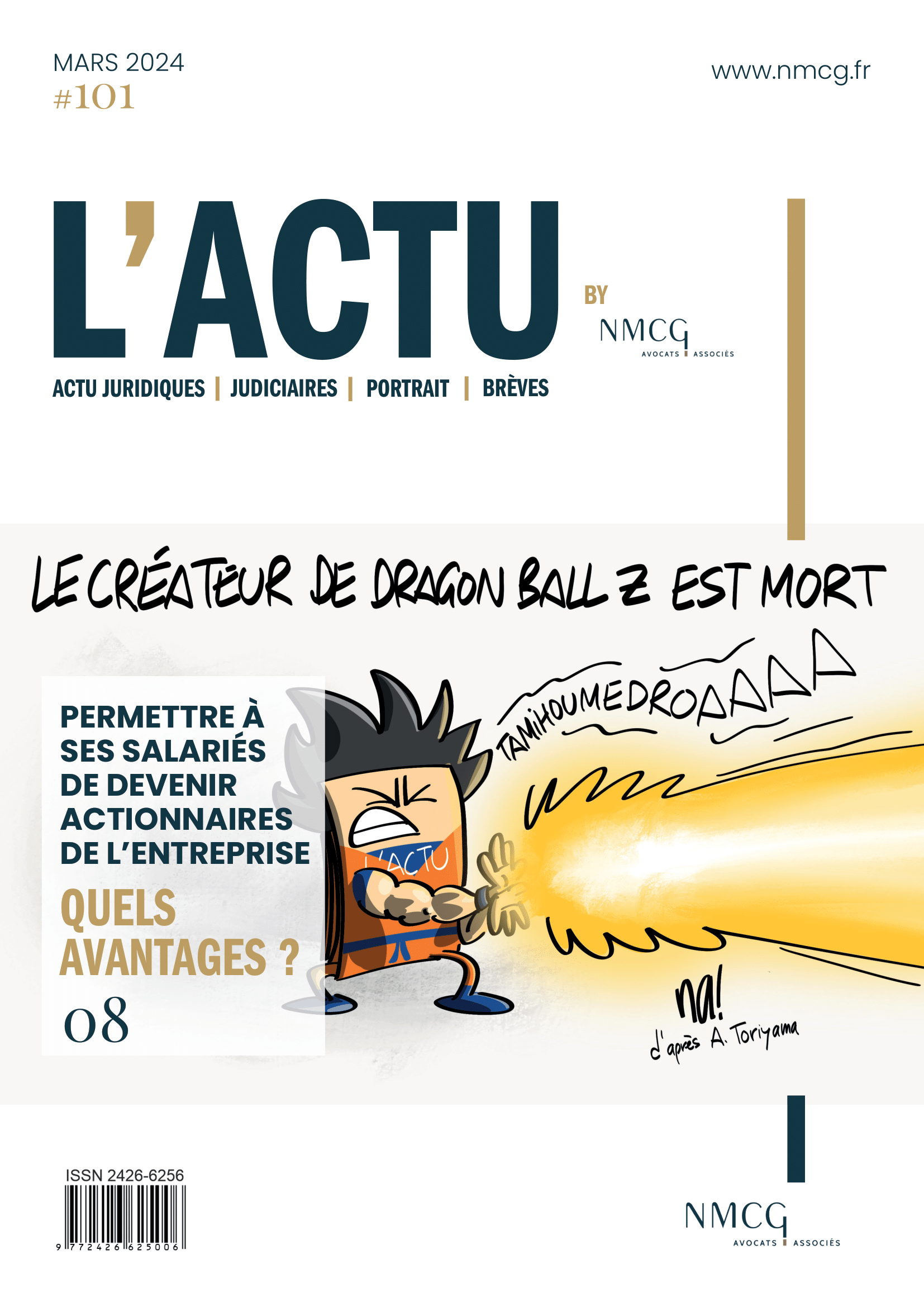“You don’t have to go fast, you just have to keep going.
1 January 2023
Cass. soc. 7 December 2022, n°21-14.484
Many employers believe that gross misconduct involves dismissal
conservatory and more than immediate action, but the reality is different.
1. Deep-rooted prejudices
Employers are sometimes cautious about dismissal for serious misconduct, which they associate with numerous constraints: a precautionary layoff beforehand and a reaction at short notice.
According to established case law, serious misconduct is the result of an act or a series of acts attributable to the employee which constitutes a breach of obligations arising from the employment contract or employment relationship of such importance that it
makes it impossible for the employee to remain in the company during the period of notice.
Furthermore, although the employer has a period of two months from the date on which he became aware of the misconduct(s) to initiate the disciplinary procedure (i.e. to send the invitation to a preliminary interview), the judges require that this be done within a “limited period” in the case of serious misconduct.
But sometimes the files pile up and they don’t have the means to be as responsive as they would like.
However, it should not be assumed that a dismissal for gross misconduct is impossible: a precautionary lay-off is not indispensable and the employer does not necessarily have to hurry.
The Court of Cassation had the opportunity to remind us of this in a judgment of 7 December last (Cass. soc. 7 December 2022, n°21-14.484).
2. Non-mandatory lay-offs
Article L 1332-3 of the Labour Code establishes what is known as a “protective” layoff, which is not a sanction (as opposed to a disciplinary layoff).
This measure allows the notifying employer to temporarily suspend the activity of an employee whose presence could be detrimental to the company, for as long as it takes for the procedure to be completed.
However, this is not an obligatory prelude to dismissal for gross misconduct.
Indeed, it is important to bear in mind that the employer is under no obligation to proceed with a precautionary lay-off before initiating a disciplinary procedure, even if the latter results in a dismissal for serious misconduct.
Moreover, the employer may, after having pronounced such a layoff, finally renounce it and ask the employee to return to work, before dismissing him for serious misconduct (Cass. soc. 18 May 2022, n°20-18.717); that is to say …!
Admittedly, such a suspension constitutes an element that can support the seriousness of the facts of which the employee is accused, but it is not indispensable (also: Cass. soc. 9 February 2022, n°20-17.140, Cass. soc. 25 February 2004, n°01-47.000).
Thus, no text obliges the employer to take a precautionary measure before initiating a dismissal procedure
motivated by serious misconduct. The important thing is the existence of serious facts.
However, we strongly recommend it if the case is suitable.
3. There is no point in running… You have to start on time
As we have said, there is a maximum period of 2 months to act, but in the case of serious misconduct the judges require action within a “restricted period”.
What does this limited time frame mean in practice?
In reality, the judges of the court of first instance have a sovereign power of appreciation in this respect and assess the situation on a case-by-case basis.
Thus, case law shows that the time required to inform the employer must be taken into account in order to assess the degree of seriousness of the misconduct (Cass. soc., 16 Jan. 1990, n°87-43.911; Cass. soc., 9 Nov. 2004, n°02-45.628).
Moreover, the reflection period granted by an employer to dismiss an employee does not remove the seriousness of the fault (Cass. soc., 18 Dec. 2002, n°00-45.637).
Similarly, it has been ruled that the employer cannot be blamed for having waited (two months, in this case), in the interests of appeasement, before sanctioning employees (Cass. soc., 10 June 1998, No. 96-42.019, Cass. soc. 14 October 1998, No. 96-43.363).
In the same vein, the mere “delay” between the pronouncement of the dismissal and the preliminary interview cannot deprive the employer of the possibility of invoking serious misconduct (Cass. soc., 12 Nov. 1991, n°90-43.957).
Thus, the mere fact that the employer did not pronounce the dismissal as soon as the period of reflection to be respected after the preliminary interview had elapsed does not automatically deprive him of the right to invoke the existence of serious misconduct (Cass. Soc. 7 March 1990, n°87-42.250).
In our judgment of 7 December 2022, the company was informed of the wrongful acts on 22 May 2015 but did not summon the employee until 19 June 2015, i.e. almost a month after…
The Court of Cassation once again examined the case on a case-by-case basis and noted that the employee had been off work since 26 May 2015 – i.e. a few days after the wrongdoing was discovered.
Although the Toulouse Court of Appeal had considered that the employer had delayed in taking action, its decision was overturned by the Court of Cassation: the fact that the employer takes a certain amount of time to initiate the procedure, when the employment contract is suspended,
cannot have the effect of removing the character of serious misconduct.
Thus, do not confuse speed with haste: the company must act within a limited period of time, but it can take the time to verify the materiality of the facts or be in the presence of facts that justify taking a certain amount of time (in particular in the case of an employee’s absence due to illness).
This is clarified in the light of this case law, just as we advise the notification of a precautionary layoff
In the event of such a case, we also advise you to act within a short period of time in order to avoid any subsequent difficulties.






























